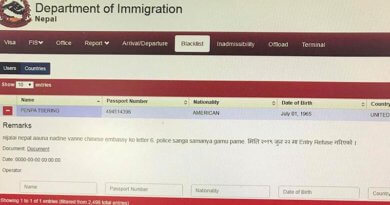Why we fly the Tibetan flag over Prague City Hall
By Zdenek Hrib | The Washington Post | 23 Dec 2019.

Prague is one of the great musical cities of Europe — a status of which we are rightfully proud. Small wonder that our musicians are welcome guests around the world.
Yet this year, four of our best musical ensembles were in for an unpleasant surprise: China, which had invited them to visit the country, abruptly cancelled their long-scheduled tours.
The reason for Beijing’s decision to rescind the invitations was clear. Since I was elected mayor of the Czech capital in 2018, I have worked to fulfil a promise to voters. I vowed during the campaign that I would return to our hallowed post-communist traditions of honouring democracy and human rights. By delivering on that promise, I and my government have prompted the ire of the Chinese Communist Party.
We have chosen to adorn our city hall with the Tibetan flag — which should not bother China at all, considering that its 1951 agreement with the Tibetan government grants the territory a broad degree of autonomy. Being a doctor, I have also publicly condemned the forced extraction of organs from members of the Muslim Uighur minority and other prisoners of the regime.
Our municipal government also rejected a clause in our sister-cities agreement with Beijing that renounced the independence of Taiwan and Tibet. That agreement, which included this highly unusual geopolitical declaration, had been approved by our predecessors in office — a move that understandably thrilled Beijing at the time. We wanted to remove the clause and preserve the standard agreement. Yet this suggestion was unacceptable to our Chinese counterparts, who then insisted on discarding the whole treaty. We have lost our partner city, but as a result, we have gained a new one. In January, we will sign a new sister-cities agreement with Taipei, the capital of Taiwan.
There are two important lessons that can be learned from our dealings with Beijing.
First, China is an unreliable business partner that does not hesitate to sacrifice profitable deals if political need dictates otherwise. The Chinese Politburo can turn big business contracts or important declarations of cooperation into meaningless pieces of paper in a matter of seconds. Business cooperation between the Czech Republic and China has been more than unbalanced. Beijing promised up to 10 billion euros of investment within the next five years. We correspondingly modified our foreign policy and opened our market. Yet the Chinese investments in the country have not followed.
Prague is not alone. There are many other examples of repercussions being taken against those who dare to criticize Beijing’s policies. Recently, for example, China suddenly cancelled a planned visit by a German parliamentary committee. Why? Because one of the German lawmakers, Margarete Bause, has been among the most vocal critics of China’s violation of human rights.
China is a country that holds enormous grudges. It strives to impose its own unitarian worldview on its dealings with Western democracies, treating politicians, artists or businesspeople not as independent members of society but as representatives of the state and its policies. The Chinese do not distinguish between a mayor of Prague or a musician from the Prague Philharmonic: “Someone from Prague misbehaved? Well, then someone from Prague will be punished.” That is the essence of the communist mentality. So don’t be surprised if your action toward China causes a completely unexpected reaction — especially if China doesn’t have any direct leverage over you.
Lately, Czechs have also been treated to disturbing revelations about China’s efforts to influence public opinion in our country. A Czech company with significant business interests in China has been caught trying to use a variety of means to ensure favourable coverage of Beijing and its policies. The affair is symptomatic of China’s ever-intensifying efforts to impose its own views on our society.
I am not advising against doing any business with China. Nor am I suggesting that we cut off all diplomatic ties; such an approach would be both extreme and counterproductive. I would, however, encourage our friends around the world to think twice and be cautious before getting into bed with such an unreliable and potentially risky counterpart.
More importantly, I encourage all of you not to surrender your values and personal integrity out of fear of blackmail and threats. And I would also like to suggest — as a symbolic gesture of solidarity — that you consider inviting Prague musicians to your states and cities. This should not be construed as some sort of act of revenge on the Chinese. Art should not be deliberately politicized or used as a means of blackmail. Just the opposite, in fact. Music and culture bring people together, create happiness and make the world a better place in which to live.
And I’m absolutely sure that, if you ever have the chance to hear our musicians play a symphony by Czech composer Bedrich Smetana, you’ll know exactly what I mean.
Zdenek Hrib is the mayor of Prague.
The views expressed in this article are that of the author’s and should not be attributed to Tibet Express.






